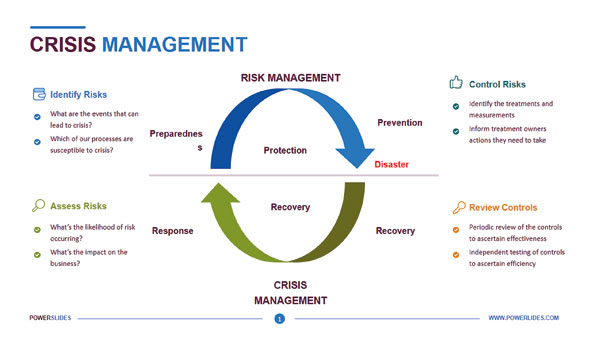Crises are inevitable… How to face a brand crisis?
View(s):Crises are inevitable and there is no way that any organization avoid a crisis. What’s important is to handle the crisis well so that the negative effect of the crisis on a brand is minimised and controlled to a greater extent. Handling a crisis involves few steps which need to be followed to make sure the crisis wouldn’t have any spill over effects which can go way beyond the actual effect that it can have on the brand or the organisation. In the local context, certain brands have gone through crises and handled well in such a way that it was not even known to public. However, without being unethical in hiding the truth, there are better ways in handling crisis. Below diagram is a depiction on as to how a crisis can be handled well. What needs to be understood is that a crisis can occur due to a valid reason or due to invalid reason which could also be a competitor attack on a brand/ organisation. In an era where social media and user-generated content play a bigger role than the truth itself, things may go out of hand in a blink of an eye. Therefore, it’s important to be aware of the steps that can be taken prior to a crisis to avoid them or/and post crisis to handle them well.
 As it’s evident what’s on the top of the line are all pre-crisis measures to be taken to avoid a crisis. For instance, during the COVID time, there were factories taking steps to make sure that there will be no exposure of their employees to COVID positive patients and those got affected by the virus. The bio bubbles, on-site accommodation etc were provided to make sure there will be thin or no possibility of them getting affected. But with all the steps being taken, there would still be a probability for the staff getting exposed and as a result the brand or the organisation facing a potential crisis. It’s all depicted bellow the line.
As it’s evident what’s on the top of the line are all pre-crisis measures to be taken to avoid a crisis. For instance, during the COVID time, there were factories taking steps to make sure that there will be no exposure of their employees to COVID positive patients and those got affected by the virus. The bio bubbles, on-site accommodation etc were provided to make sure there will be thin or no possibility of them getting affected. But with all the steps being taken, there would still be a probability for the staff getting exposed and as a result the brand or the organisation facing a potential crisis. It’s all depicted bellow the line.
The crisis arises out of many areas of the operations, including communication related errors, product or production related issues, employees related matters, suppliers or banks related matters, board of directors and their behaviour related matters, sourcing of material related matters etc. Whichever the way it may be in the end all the stakeholders are bound to get disturbed by a crisis. The most problematic area of a crisis would be someone pressing the panic button in responding to media and stakeholder quarries.
As it occurs the first step should be to recover and make sure it doesn’t spread further. At this point having accurate data is significant to control further losses. In addition to that, it’s pivotal to RESPONSE promptly. The management should accept that there is a crisis. It needs to be communicated to all the internal and external stakeholders. Also, it should be highlighted in the communication that all the precautions and steps were taken prior to the actual crisis but things have gone out of hand due to unavoidable circumstances. Next step is to assure that all corrective measures and actions are taken to prevent future occurrence of the same. It’s also important to apologise from relevant internal and external parties. What makes a crisis WORSE is hiding the truth and trying to find solutions in isolation. An organization needs to have a dedicated role for crisis management and the same must address media and elaborate on the crisis that the organisation is under-going. It will generate trust in the brand or the organisation. If handled well, it can create a positive image about the brand or the organisation despite the negative associations that it can create in the minds of the stakeholders.
Once the crisis is handled well and the steps being taken to make sure that it won’t repeat, codifying all the steps taken is important. This is to make sure that if something similar occurs there is no need to duplicate the decision-making models, and everyone is fully aware of all steps taken. It will also serve as a guideline for those who handle the crisis for the second time. Crisis handling is something that should be practiced by CEOs, political leaders and business leaders however it should all be practiced in good faith. Education on crisis management is the key to success as there is no guarantee of what can happen next in the dynamic and volatile environment that we live today.

HitAd.lk is the best and biggest mobile phone market in Sri Lanka, and we guarantee you will find what you need here from our extensive listing of mobile phones for sale in Sri Lanka. Whether it’s a budget-priced smartphone for communication, or higher end features with advanced connectivity, there are many different options from which to choose from on our site!


